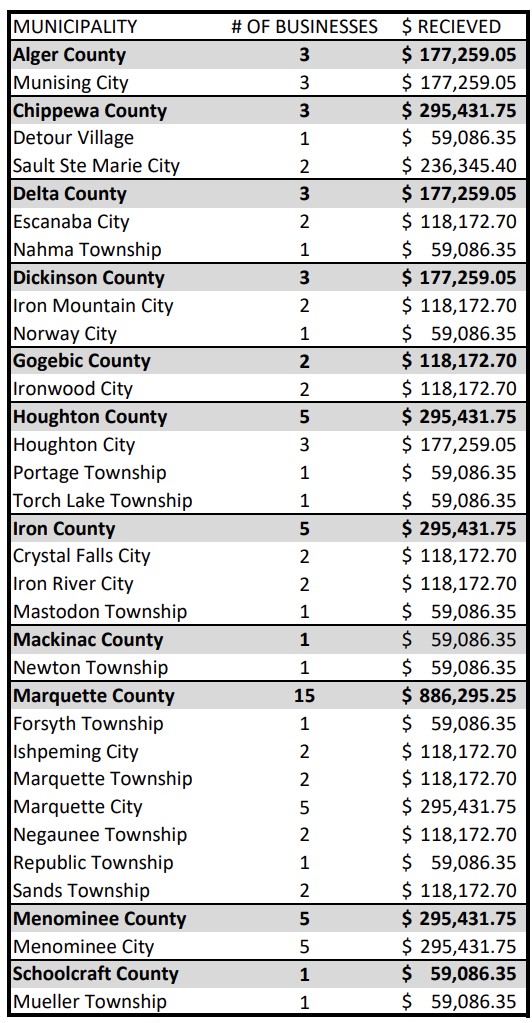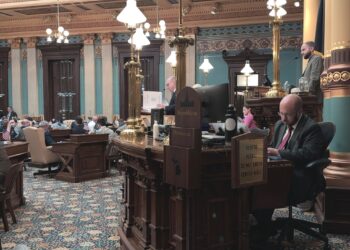LANSING, Mich. (WZMQ) – Michigan’s Department of Treasury has announced over $87 million going back to municipalities from the state’s marijuana tax, over $2.8 million of which is on its way to the U.P.
Nearly $300 million was collected in 2023 from the 10% retail excise tax on marijuana products. those funds are split 3 ways: 35% to schools, 35% to roads, and the remaining 30% to areas with retailers in their jurisdictions.

Each local municipality will receive $59,086.35 per retailer, Marquette County is set to receive $886,000 for its 15 dispensaries that local officials choose how to use. David Harns, the Public Relations Manager with Michigan’s Cannabis Regulatory Agency said that year by year, the total returns have been growing steadily.
For each cannabis retailer, both the city, township, or village as well as the county receive that $59,000. Harns explained that lawmakers split the funding that way to create an incentive for counties to permit marijuana retailers.
“Statewide, the marijuana industry employs about 35,000 people at this time. It’s been quite the economic driver in many communities,” Harns said. “The counties do incur some expense and risk for having marijuana retailers in their counties whether it be for law enforcement or whatever.”
Scott Erbisch, the Marquette County administrator explained that they put the extra funding towards the county courts, law enforcement, and jails. He said that in the four years receiving returns, the amount has fluctuated from $100,000 to over $800,000, making it hard to budget for the funds because of the fluctuating totals.
“One thing about this tax is it’s not fixed. I think what we want to make sure is that we budget appropriately for this and know that there could be some fluctuations in the funding as it goes forward.” Erbisch said. “We’re not unlike a person who’s dealing with inflation. Our costs are also going up, just like others are. These dollars are helping us balance our budget, and keep our budgets moving forward in a positive way. It’s a real bonus for our communities, our cities, our townships, that have put the hard work into creating the ordinances and rules, and guidelines for their municipalities. and I think that this is the benefit of that.”
Still, Erbisch says the extra funding has been very beneficial, he says their goal is to make sure that the money from taxpayers is put to good use, and will help each community in whichever area it’s needed most.










